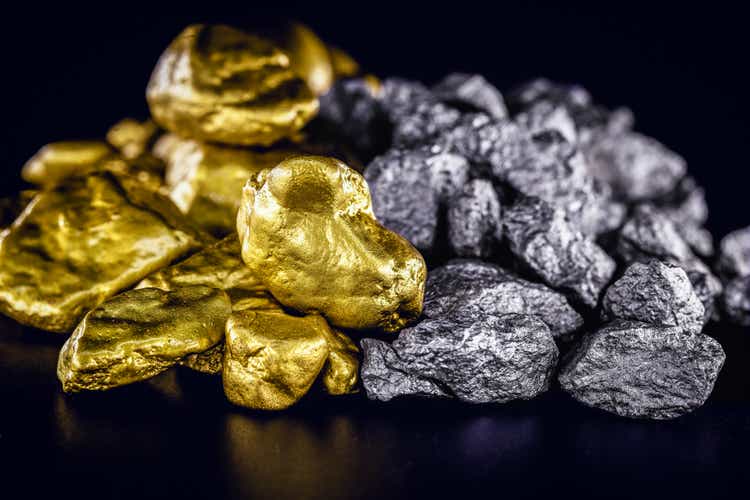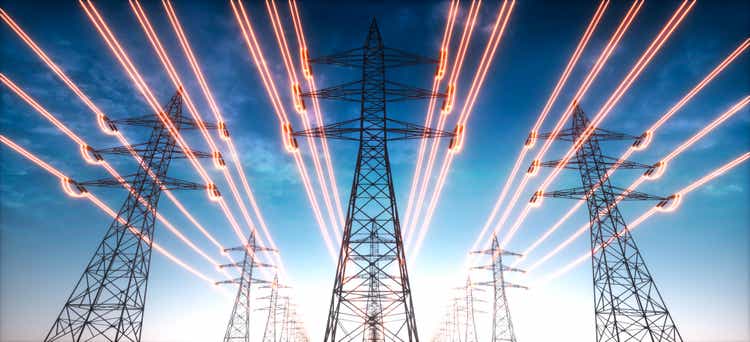In March, the AI data center company CoreWeave went public, and its share price quadrupled amid the broader artificial intelligence boom. But AI wasn’t always the company’s focus. It started in 2016 as a specialist in crypto mining—a term for using computers to process transactions and secure a cryptocurrency’s network. Amid crypto’s volatile ups and downs, CoreWeave shifted its business to AI in 2019.
Now, CoreWeave has helped another crypto mining operation fully pivot. On Monday, the company announced its plans to acquire Core Scientific, a publicly traded Bitcoin miner. The acquisition, which CoreWeave said is expected to close in the fourth quarter, was an all-stock deal for about $9 billion.
The deal follows months of announced contracts between CoreWeave and Core Scientific, in which the AI company paid the Bitcoin miner for an increasingly larger share of its processing power. And it comes as Bitcoin mining has become less profitable due to increased competition and decreased margins.
Amid the tightening sector, other Bitcoin mining operations have also lent their data warehouses out to AI companies, which require large amounts of computing power for tasks such as training large language models. Still, Core Scientific’s pivot underlines the increasingly clear roadmap for Bitcoin miners: dedicate warehouses once reserved for Bitcoin mining servers to servers designed for AI. “It kind of reinforces the thesis that there is probably some shortage when it comes to power,” Brett Knoblauch, an analyst at Cantor Fitzgerald, told Fortune, in reference to AI companies’ hunger for computing power.
Bitcoin to AI
At their core, Bitcoin miners are data center operators. They build large warehouses to house thousands of computers designed to support Bitcoin’s network. Meanwhile, as much as 20% of global data-center demand comes from artificial intelligence, according to recent research in the academic journal Joule. And about 40% of existing AI data centers will reach their power limits in 2027, predicted the analytics firm Gartner.
That hunger for power has AI specialists like CoreWeave looking to build out its fleets of computers to account for rising demand. “The only place where you can get power and size is the miners,” said Knoblauch.
Core Scientific isn’t the only Bitcoin miner shifting to AI. In 2023, Hive Blockchain Technologies changed its name to Hive Digital Technologies and said it planned to use some of its computers for AI. In December, TeraWulf struck a deal with Core42. And in April, the crypto company Galaxy, which has a Bitcoin mining division, said it planned to work with CoreWeave.
“Pivoting to HPC compute has been a key theme among BTC Miners with strong energy asset portfolios,” Brian Dobson, an analyst at Clear Street, told Fortune. (HPC refers to high-performance computing, a catch-all term that includes AI.)
Larger data center providers, including hyperscalers like Amazon, Google, and Microsoft, haven’t struck similar deals with a Bitcoin miner, said Knoblauch, the Cantor Fitzgerald analyst. “The only one that’s been super aggressive and taking up capacity is CoreWeave,” he added.
Hyperscalers tend to conduct due diligence on their vendors for longer periods than more nimble upstarts like CoreWeave, he said. And companies like Google or Amazon may be skeptical of Bitcoin miners’ ability to convert their simpler facilities into more sophisticated AI data centers, he added. Now that CoreWeave, one of the few firms taking chances on miners, has committed to Core Scientific, it may be more difficult for Bitcoin mining operations to replicate Core Scientific’s success.
Still, Knoblauch is optimistic that miners, who have built businesses on finding and using cheap electricity to power warehouses of servers, can still ride the energy-intensive AI boom. “Miners are relatively unique in that they are experts when it comes to power,” he said. “And they have a lot of it.”
This story was originally featured on Fortune.com

 7 hours ago
1
7 hours ago
1













 English (US) ·
English (US) ·